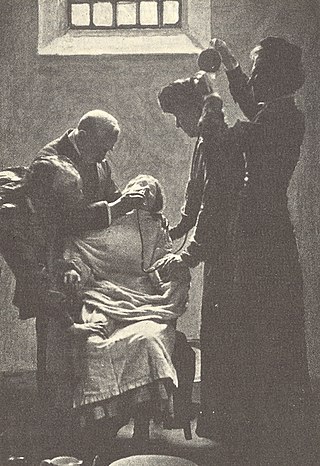
Force-feeding is the practice of feeding a human or animal against their will. The term gavage refers to supplying a substance by means of a small plastic feeding tube passed through the nose (nasogastric) or mouth (orogastric) into the stomach.
Medical torture describes the involvement of, or sometimes instigation by, medical personnel in acts of torture, either to judge what victims can endure, to apply treatments which will enhance torture, or as torturers in their own right. Medical torture overlaps with medical interrogation if it involves the use of professional medical expertise to facilitate interrogation or corporal punishment, in the conduct of torturous human experimentation or in providing professional medical sanction and approval for the torture of prisoners. Medical torture also covers torturous scientific experimentation upon unwilling human subjects.
The Manual on Effective Investigation and Documentation of Torture and Other Cruel, Inhuman or Degrading Treatment or Punishment, commonly known as the Istanbul Protocol, is the first set of international guidelines for documentation of torture and its consequences. It became an official United Nations document in 1999; the most recent revision was in June 2022.

Michael Ratner was an American attorney. For much of his career, he was president of the Center for Constitutional Rights (CCR), a non-profit human rights litigation organization based in New York City, and president of the European Center for Constitutional and Human Rights (ECCHR) based in Berlin.
Physicians for Human Rights (PHR) is a US-based not-for-profit human rights NGO that uses medicine and science to document and advocate against mass atrocities and severe human rights violations around the world. PHR headquarters are in New York City, with offices in Boston, Washington, D.C., as well as Nairobi. It was established in 1986 to use the unique skills and credibility of health professionals to advocate for persecuted health workers, prevent torture, document mass atrocities, and hold those who violate human rights accountable.
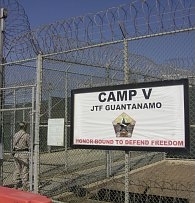
The Guantanamo Bay detention camp is a United States military prison within Naval Station Guantanamo Bay (NSGB), also called GTMO on the coast of Guantánamo Bay, Cuba. It was established in January 2002 by U.S. President George W. Bush to hold terrorism suspects and "illegal enemy combatants" during the Global War on Terrorism following the attacks of September 11, 2001. As of August 2024, at least 780 persons from 48 countries have been detained at the camp since its creation, of whom 740 had been transferred elsewhere, 9 died in custody, and 30 remain; only 16 detainees have ever been charged by the U.S. with criminal offenses.

Muhammad Ali Abdallah Muhammad Bwazir is a citizen of Yemen, once held in extrajudicial detention in the United States Guantanamo Bay detainment camps, in Cuba. Bwazir's Guantanamo Internment Serial Number was 440. American intelligence analysts estimate he was born in 1980, in Hawra', Yemen.
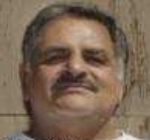
Tariq Mahmud Ahmad Muhammad al-Sawah is a citizen of Egypt who was held in the United States Guantanamo Bay detention camps, in Cuba, from May 2002 to January 2016.
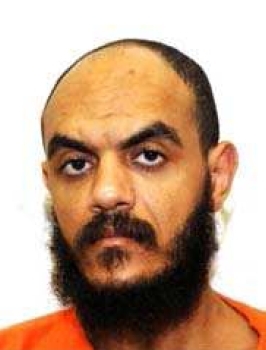
Abdul Rahman Shalabi is a citizen of Saudi Arabia held in extrajudicial detention in the United States Guantanamo Bay detention camps, in Cuba. His Guantanamo Internee Security Number is 42.
Ahmed Zaid Salim Zuhair is a citizen of Saudi Arabia formerly held in extrajudicial detention in the United States's Guantanamo Bay detention camps, in Cuba.

Jacob M. Appel is an American polymath, author, bioethicist, physician, lawyer and social critic. He is best known for his short stories, his work as a playwright, and his writing in the fields of reproductive ethics, organ donation, neuroethics, and euthanasia. Appel's novel The Man Who Wouldn't Stand Up won the Dundee International Book Prize in 2012. He is the director of Ethics Education in Psychiatry and a professor of psychiatry and medical education at the Mount Sinai School of Medicine, and he practices emergency psychiatry at the adjoining Mount Sinai Health System. Appel is the subject of the 2019 documentary film Jacob by director Jon Stahl.

Detainees held in the United States' Guantanamo Bay detention camps have initiated both individual and widespread hunger strikes at Guantánamo Bay, and camp medical authorities have initiated force-feeding programs.
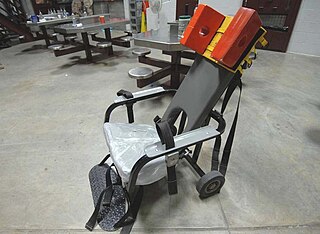
The Guantanamo Bay Hunger Strikes were a series of prisoner protests at the U.S. detention camp Guantanamo Bay in Cuba. The first hunger strikes began in 2002 when the camp first opened, but the secrecy of the camp's operations prevented news of those strikes from reaching the public. The first widely reported hunger strikes occurred in 2005.

Physicians for Human Rights–Israel is a non-governmental, non-profit, human rights organization based in Jaffa. Physicians for Human Rights–Israel was founded in 1988 with the goal of promoting "a just society where the right to health is granted equally to all people under Israel’s responsibility."
Michael Alan Grodin is Professor of Health Law, Bioethics, and Human Rights at the Boston University School of Public Health, where he has received the distinguished Faculty Career Award for Research and Scholarship, and 20 teaching awards, including the "Norman A. Scotch Award for Excellence in Teaching." He is also Professor of Family Medicine and Psychiatry at the Boston University School of Medicine. In addition, Dr. Grodin is the Director of the Project on Medicine and the Holocaust at the Elie Wiesel Center for Judaic Studies, and a member of the faculty of the Division of Religious and Theological Studies. He has been on the faculty at Boston University for 35 years. He completed his B.S. degree at the Massachusetts Institute of Technology, his M.D. degree from the Albert Einstein College of Medicine, and his postdoctoral and fellowship training at UCLA and Harvard University.
Nils Joachim Melzer is a Swiss academic, author, and practitioner in the field of international law. From 2016 until 2022, Melzer was the United Nations Special Rapporteur on Torture and Other Cruel, Inhuman or Degrading Treatment or Punishment. He is a professor of international law at the University of Glasgow. From 2011-2013, he was Swiss Chair of International Humanitarian Law at the Geneva Academy of International Humanitarian Law and Human Rights. Melzer has criticised the governments of the U.S., the U.K., Ecuador and Sweden over their treatment of Julian Assange.

Separate facilities exist to provide for Guantanamo detainees' medical care.
The UN Principles of Medical Ethics is a code of medical ethics relating to the "roles of health personnel in the protection of persons against torture and other cruel, inhuman or degrading treatment or punishment.", adopted by the United Nations on 18 December 1982 at the 111th plenary meeting of the United Nations General Assembly.
Vincent Iacopino is an American doctor, who has specialized in the after-effects of torture. He is the author or co-author of several books on torture, or that address topics related to torture. He came up with the idea of the Istanbul Protocol.

Swedish Doctors for Human Rights (SWEDHR) is a Sweden-based non-governmental organization (NGO) that previously researched and published opinion pieces on international affairs, and campaigned in support of doctors and anti-war activists persecuted or imprisoned on issues of civil liberties and freedom of expression. SWEDHR claimed to shed light on "health issues of war crimes & Human Rights abuses worldwide",[1] and it acknowledged to be an “alternative NGO” with regard to mainstream organizations. Ensuing, the views presented in its publications tended to differ from, or contradicted, those of Human Rights Watch, Amnesty International Sweden and other organizations. Up to mainly 2019, SWEDHR's primary focus has been the Julian Assange international case. During 2020 and onwards, the focus of the organization has been solely on issues around the Covid-19 pandemic.










